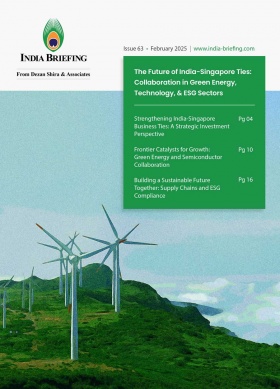Reverse Flipping in India: Why Startups Are Returning Home and What It Means for Businesses
Startups are shifting headquarters back to India, supported by new rules, investor confidence, and expanding IPO opportunities in domestic markets.
Reverse flipping, or redomiciliation, is when Indian-founded startups that were incorporated abroad move their legal headquarters back to India. In the past, the process was rare and complex; however, in 2025 it is becoming a mainstream strategy.
Reverse flipping—the practice of shifting a company’s holding structure back to India—has gained momentum in 2024 and 2025. Leading startups such as Meesho, Flipkart, Razorpay, and Zepto have already executed or announced plans to return. A key driver behind these decisions is the growing appetite for domestic initial public offerings (IPOs), supported by India’s increasingly competitive capital markets.
Regulatory reforms have further eased the process, reducing structural complexities and making relocation more attractive. For startups, reverse flipping now offers tangible advantages: it allows alignment of their corporate structure with on-ground operations, enables direct access to a deep pool of Indian investors, and strengthens their positioning ahead of IPOs.
This shift marks a broader transformation in India’s role within the global startup ecosystem. The country is no longer viewed only as a growth market—it is emerging as the preferred hub for corporate headquarters and long-term value creation.
Reverse flipping: A defining trend in India’s startup ecosystem
Over the past two years, reverse flipping—the process of relocating startup holding entities back to India—has gathered strong momentum. Meesho has shifted its parent entity to India in preparation for a domestic IPO in 2025, while Flipkart’s board has approved a similar move from Singapore to India ahead of its planned listing in 2026.
This trend is not limited to e-commerce. Fintech leaders such as Razorpay and Pine Labs, along with a growing pool of consumer tech startups, are also driving the shift.
Regulatory reforms have played a pivotal role in enabling reverse flipping. Amendments to the Companies Act, 2013—specifically under Section 233 and the introduction of Rule 25A in 2024—have created a fast-track route for inbound mergers. This framework removes the need for lengthy National Company Law Tribunal (NCLT) approvals in many cases, reducing timelines from over a year to as little as three to six months.
At the same time, India’s capital markets are strengthening their global position. In the first quarter of 2025, Indian IPOs accounted for 22 percent of global activity, underscoring the rising appeal of domestic listings for high-growth startups.
Together, these developments show that reverse flipping is no longer a rare exception. It is evolving into a mainstream strategy that is reshaping India’s startup ecosystem.
READ MORE: MCA Proposes Expansion of Fast-Track Merger Rules in India
What is driving the shift back to India
Several structural and market developments are encouraging startups to re-domicile in India.
Mature capital markets: India’s capital markets have deepened considerably, with IPO activity surging in recent years. Domestic listings are attracting strong participation from both Indian and global investors, often delivering better valuations than comparable overseas markets.
Regulatory reforms: Policy changes have streamlined the process of re-domiciliation. Clearer provisions for mergers, share swaps, and IPO readiness have reduced complexity, allowing companies to complete transitions far more efficiently than before.
Investor confidence: Domestic investor participation has expanded, with retail investors and large institutions providing robust capital flows. This trend complements India’s goal of self-reliance, which encourages companies to establish and grow their base in India.
Emergence of GIFT City: The Gujarat International Finance Tec-City (GIFT City) is positioning itself as a global financial hub. With tax incentives, relaxed foreign exchange regulations, and access to international listing opportunities, it offers startups many of the advantages of an offshore jurisdiction while enabling them to retain their legal identity in India.
Foreign exchange and ownership flexibility: Amendments to the Foreign Exchange Management Act (FEMA) and Non-Debt Instruments (NDI) Rules have simplified compliance. Share swaps can now be executed through the automatic route, provided sectoral caps and norms are adhered to, giving startups greater flexibility in restructuring ownership during re-domiciliation.
Why startups originally incorporated abroad
Before recent developments in India’s regulatory framework, many startups chose to incorporate overseas rather than domestically. The local environment posed several hurdles: compliance processes were cumbersome, SEBI’s regulations were restrictive, and designing effective Employee Stock Option Plans (ESOPs) was challenging. For rapidly scaling companies, these constraints created friction and limited the flexibility needed for ownership structuring and fundraising.
In contrast, foreign jurisdictions offered a far more supportive ecosystem. Countries such as the US and Singapore provided easier access to venture capital, IPO-friendly regulatory regimes, predictable legal systems, and tax-neutral structures that facilitated cross-border investments.
As a result, investors frequently pushed for the creation of offshore holding companies. This model not only ensured stronger legal protections and smoother exit mechanisms but also allowed investors to engage with familiar global structures, even when the core business operations were firmly based in India.
Future outlook of reverse flipping in India
Opportunities and challenges together shape the outlook for reverse flipping in India.
On the opportunity side, India’s IPO pipeline continues to expand, and domestic listings attract comparatively higher valuations than several overseas markets. Global and domestic investors show increasing interest in these offerings. Policy initiatives also encourage companies to consolidate their operations and legal structures within India, further supporting this shift.
At the same time, startups face several challenges when re-domiciling. They incur tax liabilities in foreign jurisdictions, restructure ESOP frameworks and shareholder agreements, and absorb the associated costs and complexities. Multi-layered holding structures, common in globally backed startups, add further compliance and approval requirements.
Overall, more startups now pursue reverse flipping as regulatory reforms and stronger capital markets make the process more viable. As these developments progress, an increasing number of companies are likely to establish India as the base for their holding entities, creating implications for founders, investors, and the broader business ecosystem.
About Us
India Briefing is one of five regional publications under the Asia Briefing brand. It is supported by Dezan Shira & Associates, a pan-Asia, multi-disciplinary professional services firm that assists foreign investors throughout Asia, including through offices in Delhi, Mumbai, and Bengaluru in India. Dezan Shira & Associates also maintains offices or has alliance partners assisting foreign investors in China, Hong Kong SAR, Vietnam, Indonesia, Singapore, Malaysia, Mongolia, Dubai (UAE), Japan, South Korea, Nepal, The Philippines, Sri Lanka, Thailand, Italy, Germany, Bangladesh, Australia, United States, and United Kingdom and Ireland.
For a complimentary subscription to India Briefing’s content products, please click here. For support with establishing a business in India or for assistance in analyzing and entering markets, please contact the firm at india@dezshira.com or visit our website at www.dezshira.com.
- Previous Article Indian Exporters Face 50% US Tariff Rate Effective August 27, 2025
- Next Article India’s Foreign Direct Investment Tracker 2025












